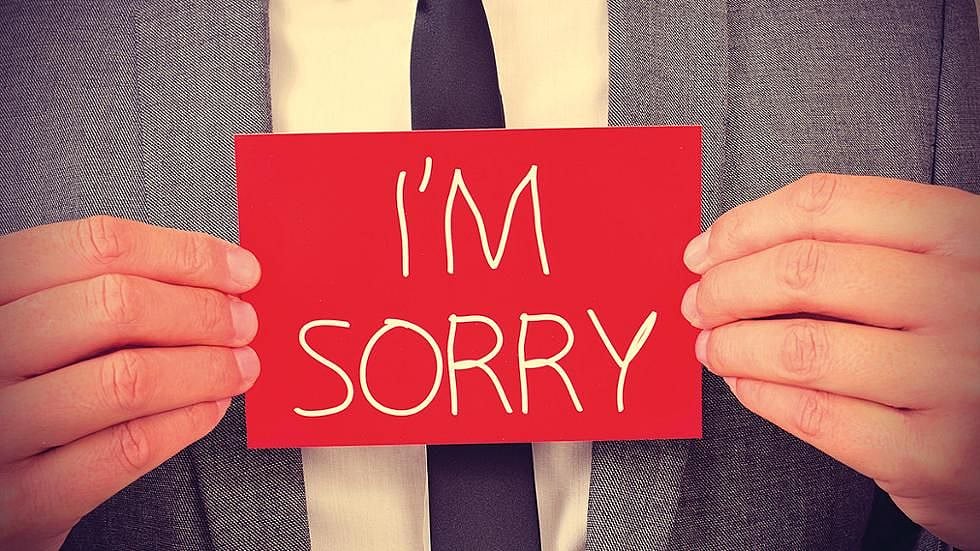Sorry for not apologising, the error is regretted
Suresh Menon wonders why is it so difficult to say sorry?
Last updated:
2 MIN READ

Shutterstock
Shutterstock
Sign up for the Daily Briefing
Get the latest news and updates straight to your inbox
Network Links
GN StoreAbout Gulf NewsTerms & ConditionsReach by GNSitemapContact usPrivacy PolicyGN FocusHave your sayWork with usAdvertise with usGulf News epaperPrinting Services
Download our app
© Al Nisr Publishing LLC 2026. All rights reserved.